City Guild:Dalian
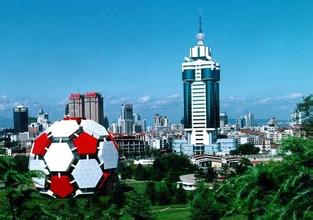
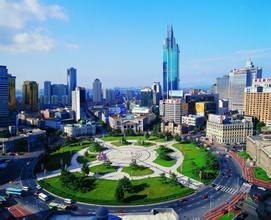
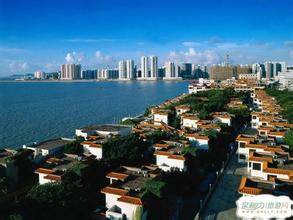
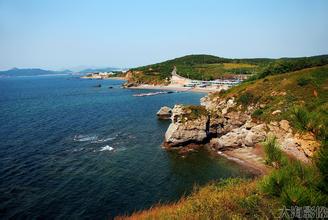
CONTENT
| 1. General introduction | 2. Transportation |
| Location & population | Metro |
| Climate | Railway |
| Economy & industry | Air |
| 3. Education & Health care | 4. Recreation |
| International Schools | Shopping |
| Hospitals | Nightlife |
| Cuisine | |
| Attractions |
1. General introduction
Dalian is a charming city and second largest in Liaoning Province. Known as the home of track and field and City of Fashion, it is one of the most important industrial bases and seaports in China. It is located at the tip of Liaodong Peninsula. To the east, is the Yellow Sea, and to the west is the Bohai Sea. It is a major city and seaport in the south of Liaoning Province. Dalian is the southernmost city of Northeast China and China's northernmost warm water port, it has a significant history of being used by foreign powers for its ports (Dalian's port and Lushun's port). Today it serves as a regional financial base and an important international shipping centre and logistics hub in Northeast Asia. The population of Dalian according to the 2010 census totaled 6.69 million.
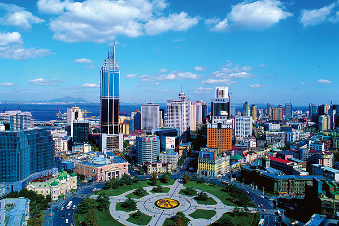
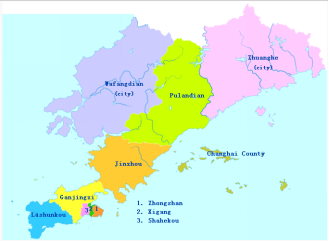
Location & population
Dalian is a major city and seaport in the south of Liaoning Province, People's Republic of China. It is the southernmost city of Northeast China and China's northernmost warm water port, at the tip of theLiaodong Peninsula. Dalian is the province's second largest city and has sub-provincial administrative status;[5] only the provincial capital (Shenyang) is larger. The Shandong Peninsula lies southwest across the Bohai Sea; Korea lies across the Yellow Sea to the east.
The population of Dalian according to the 2010 census totaled 6.69 million. The total registered population on household at year end 2014 was 5.943 million, with a net increase of 29,000 over the previous year.
Climate
Dalian has a monsoon-influenced humid continental climate (Köppen Dwa), characterised by humid summers due to the East Asian monsoon, and cold, windy, dry winters that reflect the influence of the vast Siberian anticyclone. Except for winter, the city experiences a one-month seasonal lag due to its position on the Liaodong Peninsula. The monthly 24-hour average temperature ranges from −3.9 °C (25.0 °F) in January to 24.1 °C (75.4 °F) in August. Annual precipitation averages 602 millimetres (23.7 in) but is heavily concentrated in the summer months and can vary greatly from year to year.
Economy & industry
The city has had a continuous annual double-digit percentage increase in GDP since 1992. In 2014, the city's GDP registered a 5.8% increase, reaching RMB 765.56 billion, while per capita GDP hit RMB 109,939. According to a nationwide appraisal by the National Bureau of Statistics, Dalian ranks eighth among Chinese cities in terms of overall strength. The city’s main industries include machine manufacturing, petrochemicals and oil refining, and electronics. Even before and during the Sino-Japanese War, the shipbuilding and locomotives industries were located in the city such as the companies which later became Dalian Shipbuilding Industry Company and CNR Dalian Locomotive & Rolling Stock Works (DLoco). After the War, Dalian became an important center of the heavy and light industries, including companies such as Dalian Heavy Industry Co., Dalian Chemical Group, and Wafangdian Bearing Co.; and of the distribution industry, such as Dashang Group. Overseas retailing giants, such as Walmart from the US, Carrefour from France, Metro from Germany and Tesco from the UK have opened stores in Dalian.
2. Transportation
Local transportation
Not many people ride bicycles in Dalian because of the hilly roads. Dalian is also one of the many cities in China where there are few motorcycles, because motorcycle riding on most roads is banned by law.The city has a comprehensive bus system and an efficient metro system. As of November 2015, the Dalian Metro consists of the underground Line 1, Line 2, and the overground Line R2 and Line 3. New lines and expansion of the metro system are under way. The Dalian Tram system is the second oldest in China. Most of the public transportation in the city can be accessed using the Mingzhu IC Card (明珠卡).
Domestic and international
In 2005 Dalian expanded the international airport, Dalian Zhoushuizi International Airport, with direct flights to the most major cities in China, and to some cities in Japan, South Korea and Russia. In 2014, the airport was the 20th busiest airport in China with 13,551,223 passengers. The airport is the hub of Dalian Airlines.
The city's location means that train trips to most Chinese cities outside China's northeastern region require changing trains in Beijing or Shanghai. With the high-speed rail system, trips from Dalian to Shenyang can be completed in 1.5 hours, to Changchun 2.5 hours and to Harbin 3.5 hours. The city has two railway stations, namely Dalian Railway Station and Dalian North Railway Station (IATA: DBL), that latter being part of the Harbin–Dalian High-Speed Railway.
In addition to local and express bus service to Beijing and other areas in the northeast, Dalian is connected by passenger ship service to neighbouring coastal cities, including Tianjin, Yantai, Weihai, Penglai and Dongying, as well as Incheon, South Korea.
Metro
The city has an efficient Dalian Metro system, usually called Qinggui (轻轨), which connects Dalian Development Zone and Jinshitan with downtown Dalian. The Dalian Tram system is the second oldest in China.
Railway
There are high-speed trains from Dalian, Harbin, Beijing, Jilin, Changchun and Shenyang, and bullet trains to Tianjin. You can take one at Dalian Railway Station or Dalian North Railway Station.
Air
Dalian Zhoushuizi International Airport has developed 145 airlines so far. Among which, 98 lines are for domestic cities and 47 are for other countries and special administrative areas.
3. Education & Health care
International Schools
There were 23 general institutions of higher education (and another 7 privately run colleges), 108 secondary vocational schools, 80 ordinary middle high schools, 1,049 schools for nine-year compulsory education and 1,432 kindergartens in Dalian. The students on campus of all levels (including kindergartens) totaled 1108 thousand.
There are the following schools international schools in Dalian:
Dalian American International School serves the educational needs of the children of foreign residents who hold a valid foreign passport and are living in Dalian, China and neighboring areas. At Dalian American International School, students are taught a broad range of academic subjects by experienced staff of international educators. The school maintains low student/teacher ratio. For further information, please visit their website: http://www.daischina.org/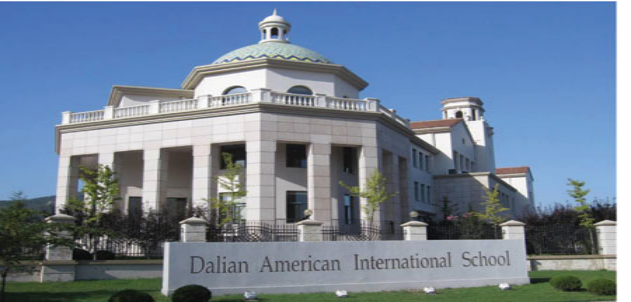
Designed specifically for the children of foreign nationals, Maple Leaf offers kindergarten-9th grade programs. Classes are taught in English and by utilizing the British Columbia school system's proven educational methods. Facilities include a computer room, science lab, library, music room, art space, gymnasium, and a cafeteria. This school is certified by the Canadian Board of Education. See website for pictures and further information: http://www.mapleleaf.cn/
Hospitals
At the end of the year 2008, the city had 2373 medical institutions. These are spread throughout the city, with 1870 clinics and health stations and 111 hospitals. Included in this number as well are the 39 community public health service centers, 32 community service stations, and four community hospitals established in the four downtown districts.
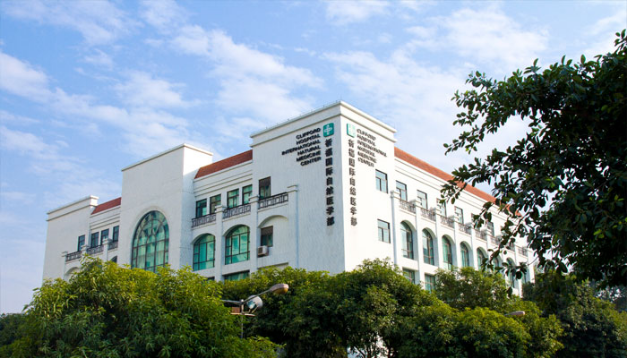
4. Recreation
Shopping
Nightlife
Foreign visitors can experience a wide range of enjoyable nightlife options, from high-energy Chinese venues to more classic western-style nightclubs. There are also quiet bar choices for friends to grab a drink and catch up on what’s new.
They are easy to find and are very safe to visit with talented entertainment options and the latest music from all different genres. It is also a good value compared to places in Europe and America since in many bars in Dalian, your RMB 100 can get you ten bottles of local beer. That amount would most likely get you only one bottle in bars around Europe.
Suzie Wong’s located in the basement of Furama Hotel is a more traditional club. It is tastefully decorated and has a comfortable layout for foreign guests to the city. The club is also well-known for its exciting themed parties such as Latin Night, Ladies Night, and many others. Drink specials and promotions are also very commonly arranged.
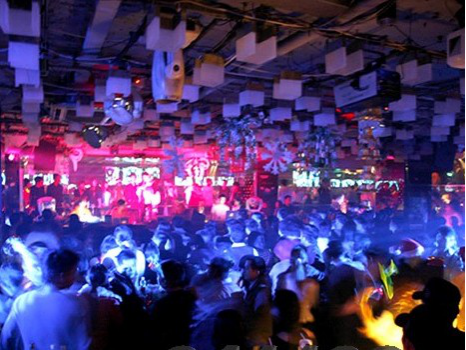 If you are a dance club fanatic, you can’t leave Dalian without stopping by JDs. The best time to go there is on a Friday or Saturday night. This is the best time to find pretty girls to dance with. One visit and you will quickly find out why everyone ends up there by the end of the night.
If you are a dance club fanatic, you can’t leave Dalian without stopping by JDs. The best time to go there is on a Friday or Saturday night. This is the best time to find pretty girls to dance with. One visit and you will quickly find out why everyone ends up there by the end of the night.
To understand the true meaning of the Chinese club scene, get a group of friends together and spend a night at King Club. Here you’ll find a number of great local DJs and the club’s professional dancers will give you a very dream-like experience. Be prepared to book a table and purchase alcohol by the bottle.
As for the Dalian bar scene, there are a few options worth checking-out.
Bobos is a good place to unwind and relax. After a long week of work, spend an evening watching a football game with a delicious cocktail in hand at Bobos.
Accapella is a friendly and cute bar where you’ll find beautiful singing performances from the bar owner himself who happens to be a foreign professional musician.
Stroller’s is a bar which defines the word “chill”. Sit around comfortably with friends, drink beer and chat without loud crazy music to bother you.
Cuisine
Dalian cuisine is a branch of Shandong cuisine, with influence from Northeastern Chinese cuisine, and is widely known for its unique style of seafood dishes. The variety of seafood in Dalian includes fish, prawns, clams, crabs, scallops, sea urchins, oysters, sea cucumbers, mussels, lobsters, conches, abalone, algae,razor clams, urechis unicinctus, mantis shrimps, jellyfish and so on.
Colorful snowflake scallops (Chinese: 五彩雪花扇贝) is a local seafood dish, where egg white is made into snowflake-shape to embrace the scallops, with seasonal greens, carrot and hot pepper cut into small pieces as decorations on top.
Another popular local dish is Salted fish with corn cake (Chinese: 咸鱼饼子), where steamed or fried corn cake is served with fried salted fish. Legend goes that, in the old days fishermen going out fishing in the morning couldn't return home to have lunch, so they baked fresh fish to eat with corn cakes, and the habit passed down from generation to generation and eventually became a famous food among local people.
Dalian Menzi (Chinese: 焖子) is a traditional local snack. A protein-rich starch paste coagulated from an extract of potatoes is cut into pieces and fried on a pan to create a crisp cover. A mixed seasoning of smashed garlic, sesame, and sauces is added on eating.
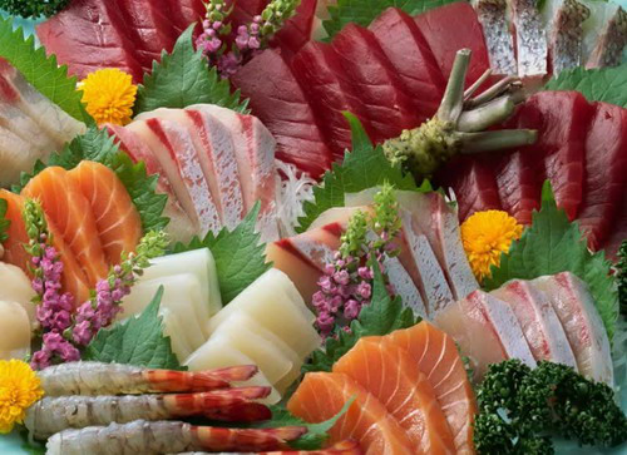
Attractions
Dalian is a popular destination among domestic tourists and foreign visitors, especially from Japan, South Korea and Russia. Its mild climate and multiple beaches as well as its importance in the modern history of China have attracted tourists. Some of the most famous beaches are Jinshitan Golden Coast beach, Fujiazhuang beach, Bangchuidao beach, Xinghai Park beach, Xinghai Bay beach, and Xiajiahezi beach. In 2007, it was one of the three cities named "China's best tourist city", along with Hangzhou and Chengdu, recognized by the National Tourism Administration and the United Nations World Tourism Organization.
There are various hot spring hotels in Dalian. Notable ones include, Laotieshan Hot Spring Hotel in Lüshun, Tang Dynasty Hot Spring Resort in Jinshitan, Minghu Hot Spring Hotel in Wafangdian City, Chengyuan Hot Spring Villa in Ganjingzi District, and Tianmu Hot Spring Hotel in Lüshun.
Skiing has become increasingly popular in Dalian. Famous ski resorts are, Linhai Ski Resort in Ganjingzi District, Anbo Ski Resort in Pulandian City, Minghu Ski Resort & Minghu International Skiing Holiday Village in Wafangdian City, and Dalian Happy Snow World in Ganjingzi District near the airport.
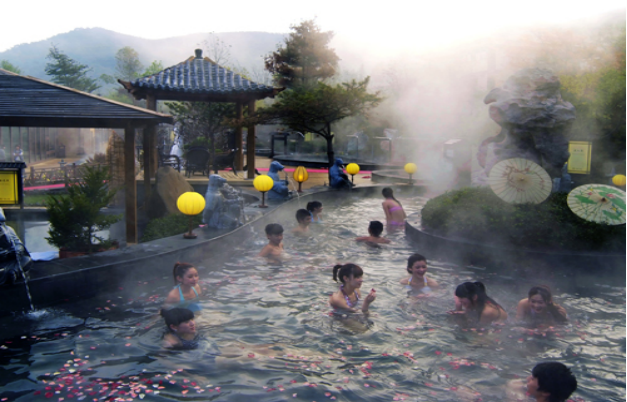
- Name:Yosemite 优山美地Address:No.57 Jinshi Road
- Address:Xinghai Square B3 District
- Name:YiDa YunJi 亿达云集Address:On the opposite side of the Kuiying Primary School
- Address:Cherry Blossom Villa
- Address:Xinghai Square area E
- Name:Dalian Pearl 大连明珠Address:Xinghai Square B2 District
- Address:On the esat side of Jin Shitan Maple Leaf International School
- Address:The intersection of Fourteen middle school and Liushu Street
